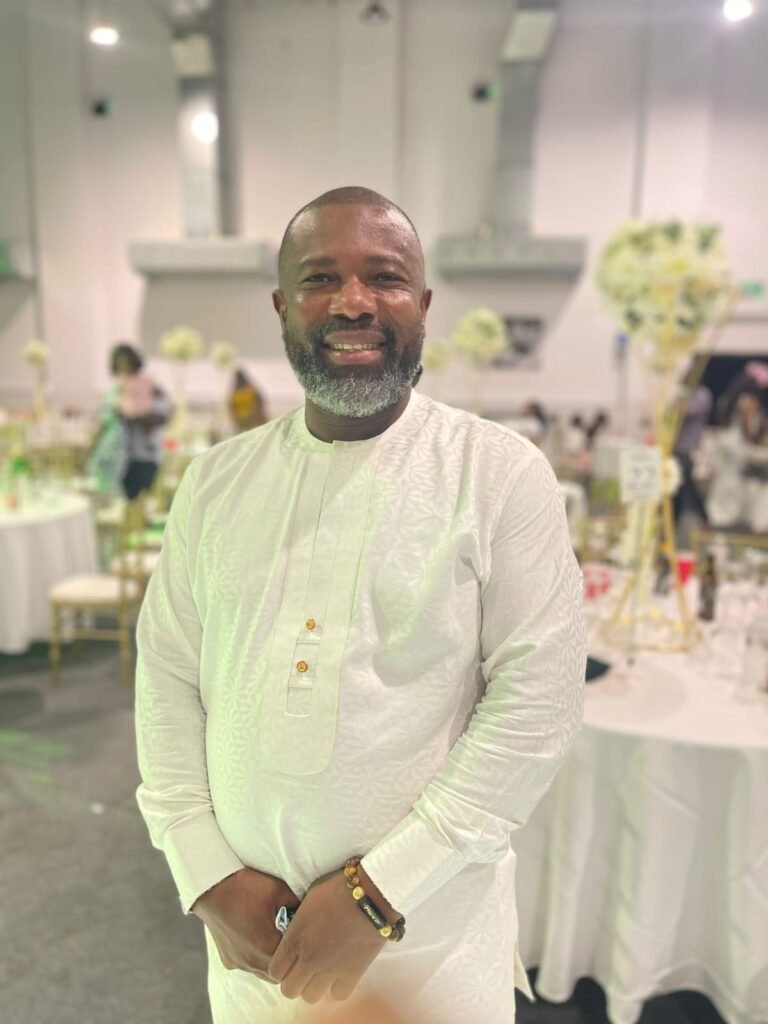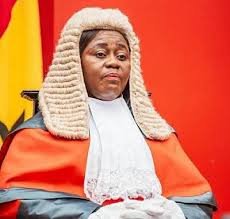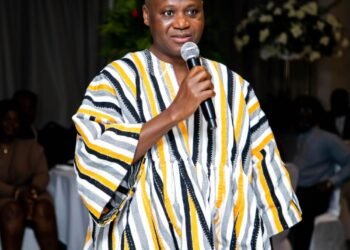By: Francis Aweso (Social Worker, Manchester UK)

In an unprecedented move in Ghana’s judicial history, Chief Justice Gertrude Torkornoo publicly addressed the nation while facing an Article 146 petition seeking her removal. Her statement, broadcast across media platforms, has sparked a national debate over propriety, judicial ethics, and the boundaries of public engagement by sitting judges.
At the heart of the matter is a fundamental question: Was it right for Justice Torkornoo to speak publicly during an ongoing disciplinary process?
The Case for Speaking Out
Supporters argue that Justice Torkornoo’s decision to go public was both courageous and necessary. In her statement, she alleged a range of procedural concerns: lack of formal notice of charges, denial of legal representation, an intimidating hearing venue, and invasive personal searches. She claimed these irregularities undermined not just her rights, but the integrity of the judiciary itself.
Justice Torkornoo maintained that her address was not a personal defense, but a principled stand for future generations of judges and for the preservation of judicial independence. “This is not about me,” she said, “this is about the soul of the Judiciary.”
With legal avenues to challenge the process narrowing—her injunction against the hearings was dismissed—the public address may have been her only remaining tool to challenge what she described as a flawed and opaque process. In this light, her speech becomes not a breach of decorum, but a form of institutional whistleblowing.
The Case Against Speaking Out
Critics, however, view her actions as a dangerous departure from judicial norms. Legal professionals and political commentators alike have questioned the propriety of a sitting Chief Justice publicly addressing ongoing proceedings. They argue that such actions risk undermining the impartiality of the judiciary and set a precedent for politicising legal processes.
Member of Parliament and lawyer Rockson-Nelson Dafeamekpor criticized her approach, stating that grievances of this nature should be resolved through judicial review or formal appeal—not press conferences. Others have suggested that by going public, Justice Torkornoo risks eroding the very institutional credibility she seeks to defend.
Moreover, detractors argue that her speech veers dangerously close to contempt of court. They point to Ghana’s long-standing tradition of judicial restraint, where judges are expected to let their rulings and the legal process speak for them, not public statements.
A Constitutional and Ethical Dilemma
Justice Torkornoo’s address places Ghana at a constitutional crossroads. On one hand, it underscores the importance of transparency and the need to protect judicial officers from potentially politicised removals. On the other, it challenges foundational norms around judicial conduct and neutrality.
Was her action bold and principled, or inappropriate and destabilising? The answer may depend on one’s perspective.
Those who value institutional integrity and democratic transparency may see her public statement as a necessary act of resistance against a compromised process. Others, who prioritise judicial restraint and the sanctity of due process, may view it as a dangerous politicization of the judiciary.
Conclusion
Justice Gertrude Torkornoo’s decision to speak out during her removal hearing is a watershed moment in Ghanaian legal history. Whether it is ultimately judged as righteous or reckless, it has undeniably reshaped public discourse about the judiciary’s role in a constitutional democracy.
In the end, the nation must grapple with a delicate balance: protecting the dignity of the judiciary while ensuring accountability and fairness within its own walls.
Francis Aweso (Social Worker, Manchester UK)





























